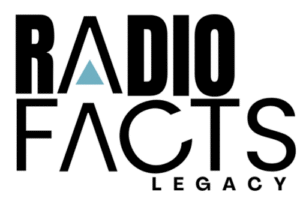 –
– The National Alliance on Mental Illness, Urban LA (NAMI Urban LA) presents jazz and pop recording artists Natalie Cadet and Marguerite Alexis, as this year’s headline performers at its debut event raising care and awareness for mental health in the Black community. “Music. Community Conversation. Telling Our Story” is a free event of music, talk, and refreshments – open to the public on Friday, September 29, 2017, at 6-8:00 p.m. at Community Build Garden, 4305 South Degnan Blvd., Los Angeles.
Taking Suicide Prevention Month as an opportunity to highlight the walk-in services and ongoing programs available to people in Los Angeles, NAMI director, Harold Turner, noted, “You’re not your diagnosis. You are not alone.” This sentiment is underscored by the songwriter and performers, Natalie Cadet and Marguerite Alexis, both artists having experience in maintaining and establishing mental health.Natalie Cadet, an accomplid jazz vocalist, arranger and college music professor has used her musical platform to illuminate her past bout of mental depression.
Armed with a Bachelor’s degree in Vocal Performance and Pedagogy from Oakwood University and a Master’s degree in Contemporary Improvisation from New England Conservatory, Natalie transformed her angelic vocal artistry and songwriting skills into ingenious jazz-pop compositions sprinkled with a little R&B flavor. In her current single, “Dear Depression” and takes listeners and viewers on a jazzy/blues-inflected journey into the world as seen through her previous state of mind.
After meeting with musician Marguerite Alexis, who is also a NAMI staff member, both artists found a kindred opportunity to use their musical platform to discuss mental health, social justice, and change.“You are not alone.” says Marguerite. “We are not alone. Come celebrate a night of song, community, and sharing our stories. Together we are stronger, and with support and faith, we can move mountains and heal together.”
NAMI Urban Los Angeles (NULA) was founded in 2003 and is the Black affiliate of NAMI, the National Alliance on Mental Illness. NAMI is the nation’s largest grassroots mental health organization dedicated to educating, advocating, supporting, and building better lives for the millions of individuals & families affected by mental illness.
NAMI Urban Los Angeles (NULA) provides education about severe brain disorders, supports increased funding for research, and advocates for adequate health insurance, housing rehabilitation, and jobs for people with serious psychiatric illnesses in communities of color. It also seeks to educate the public about the myths of mental illness to eradicate stigma. NULA seeks to be a beacon of hope in the community it serves.
Providing such programs and courses as Family-To-Family, a series of courses for family, caregivers, friends of individuals with mental illness; Peer-To-Peer, for those maintaining and establishing their wellness and recovery; and their latest courses which are focused on foster care youth between the ages 16 and 24 years old. One of the latest innovate programs offered, NAMI Urban Los Angeles offers goal planning, supported education, supported employment, health and wellness classes, peer mentoring and social activities for transition Age Youth (TAY).
TAY are young people between the ages of sixteen and twenty-four who are in transition from state custody or foster care and are at-risk. TAY is just one of the initiatives that seek to meet the challenge establid by of one of NAMI’s illustrious founders: New York Times bestseller author, the late, Bebe Moore Campbell.
Mrs. Campbell’s last adult book, “72 Hour Hold,” publid in June 2005, was also the subject of the last major crusade took on before her death — advocating for mental health, especially in the minority community, said her friend and publicist, Linda Wharton-Boyd, of New York. Her interest in mental health was motivated by a loved one in her family who is struggling with mental illness. It also was a catalyst for her first children’s book, “Sometimes Mommy Gets Angry” (2003). “She wanted people to get help that was necessary rather than hide it under a rug,” Ms. Wharton-Boyd said


